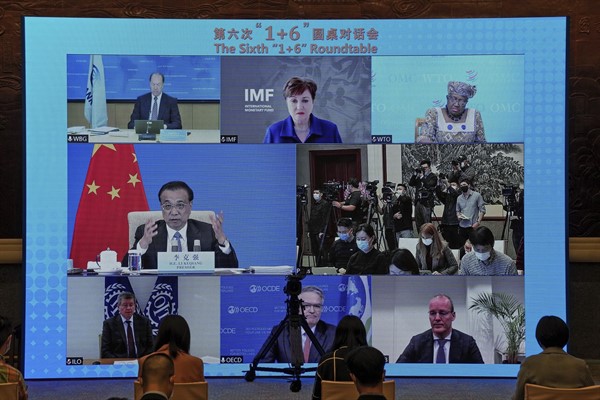As China leveraged its state capitalist model to become a global superpower, it increasingly challenged the market-oriented basis of the liberal economic order founded by the United States and its allies 75 years ago. When this competition between the Chinese and Western economic systems gained steam in the 2010s, the main battlefield of international relations also began to shift from the classical realm of security to the normally “civilian” fields of trade, investment, technology and finance—in other words, from geopolitics to geoeconomics.
With Russia’s invasion of Ukraine, military force is front and center once again, even before the United States and its European and Asian allies have been able to cement a common strategy toward China’s economic rise. So is the age of geoeconomics, in which the balance of power is determined by the systemic economic rivalry between China and the West, over before it ever began? Three developments would seem to lend credence to this idea.
First, Western economic policy has been on overdrive since Russia’s aggression. But it is not being drawn upon to maintain the rules-based global economy, which until the hostilities in Ukraine was arguably the dominant strategic interest of the United States and like-minded countries. Instead, financial sanctions, export and investment controls, oil import embargoes and revoking Russia’s “most favored nation” trade status in the World Trade Organization are being deployed to blunt a malevolent use of hard power in global politics.

